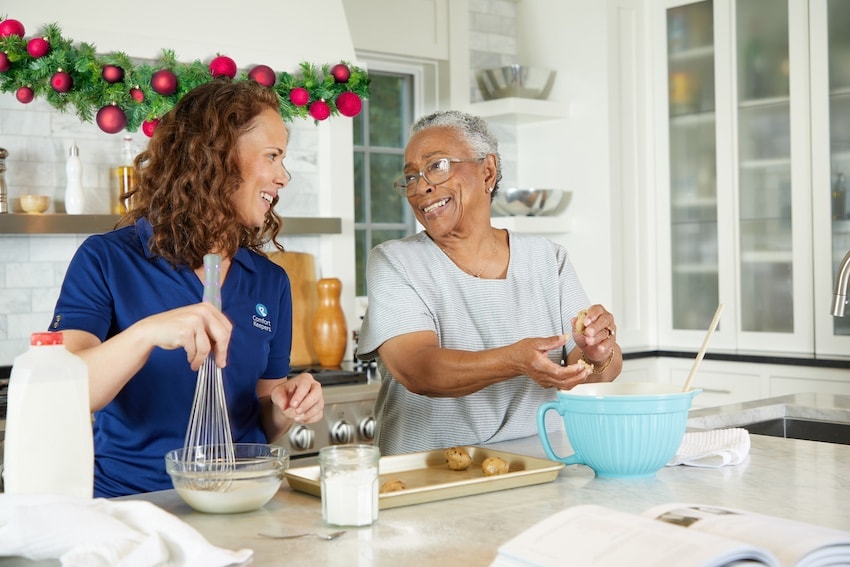Dementia Care Nutrition
Being certain seniors with dementia are properly nourished can be difficult. This article will cover nutrition-related issues that seniors with dementia often struggle with as well as tips for their caregivers.

Seniors with dementia and other Alzheimer's related conditions sometimes struggle to get the nutrients they need. This will be an article on some dietary issues that seniors with dementia commonly struggle with and some dementia care nutrition tips for caregivers.
Seniors with dementia sometimes forget that they have already eaten a meal and eat a second meal consecutively. Or alternatively, a senior may forget that they were supposed to eat a meal and skip their meal altogether. Caregivers can have the senior's doctor monitor nutrient levels in their blood to make sure they are getting enough to eat. Also, caregivers should check the fridge and cabinets for uneaten meals and check the sink for used dishes to get a better idea of the senior's eating habits, as their communication may not always be accurate. It is also a good idea to keep food, such as non-perishable snacks, in plain sight to encourage regular eating habits.
Sometimes seniors have trouble preparing meals by themselves, especially meals that require a complex cooking process. This can come in the form of forgetting to prepare entire sections of the meal or forgetting individual ingredients. Caregivers providing dementia care can make sure the senior has nutritious, high-quality and easy to prepare meals on hand. Examples of these are fresh fruits, soups with pull-tops and cheese that is already pre-sliced.
Seniors may forget to drink enough fluids, or sometimes even deliberately refrain from drinking fluids to decrease the frequency of urination. Dementia care providers can make sure the senior has access to a variety of fluids to encourage them to drink as much as possible. This does not have to be limited to just beverages. Popsicles, soup, nutritious shakes and fruit juice are great examples of creative ways to sure the senior has enough fluids.
Finally, the diet of seniors with dementia or other Alzheimer's related conditions may start to decrease in variety. Sometimes seniors eat only sweets and soup while drinking only carbonated beverages. This can result in vitamin deficiency. Providers of dementia care for these seniors need to make sure each senior has access to foods that are nutritious, especially foods that are high in vitamin B, especially since seniors sometimes have trouble grocery shopping. Studies show that Vitamin B is essential to good cognition, which is important for seniors with dementia. Foods that are especially healthy for seniors include:
- Bananas
- Leafy greens
- Dairy products
- Enriched grain products
Sign up to receive helpful info right to your inbox.
We understand choosing an in-home care provider can be a difficult decision, and we want to make your journey as easy as possible. We're here to support you by providing helpful senior care tips and information on in-home care and senior health and wellbeing topics.
Start a Job with a Purpose
Uplifting training and support for you every step of the way.
Apply to be a caregiverEditor Picks
Check out some of our most popular resources on Alzheimer's and Dementia care.









